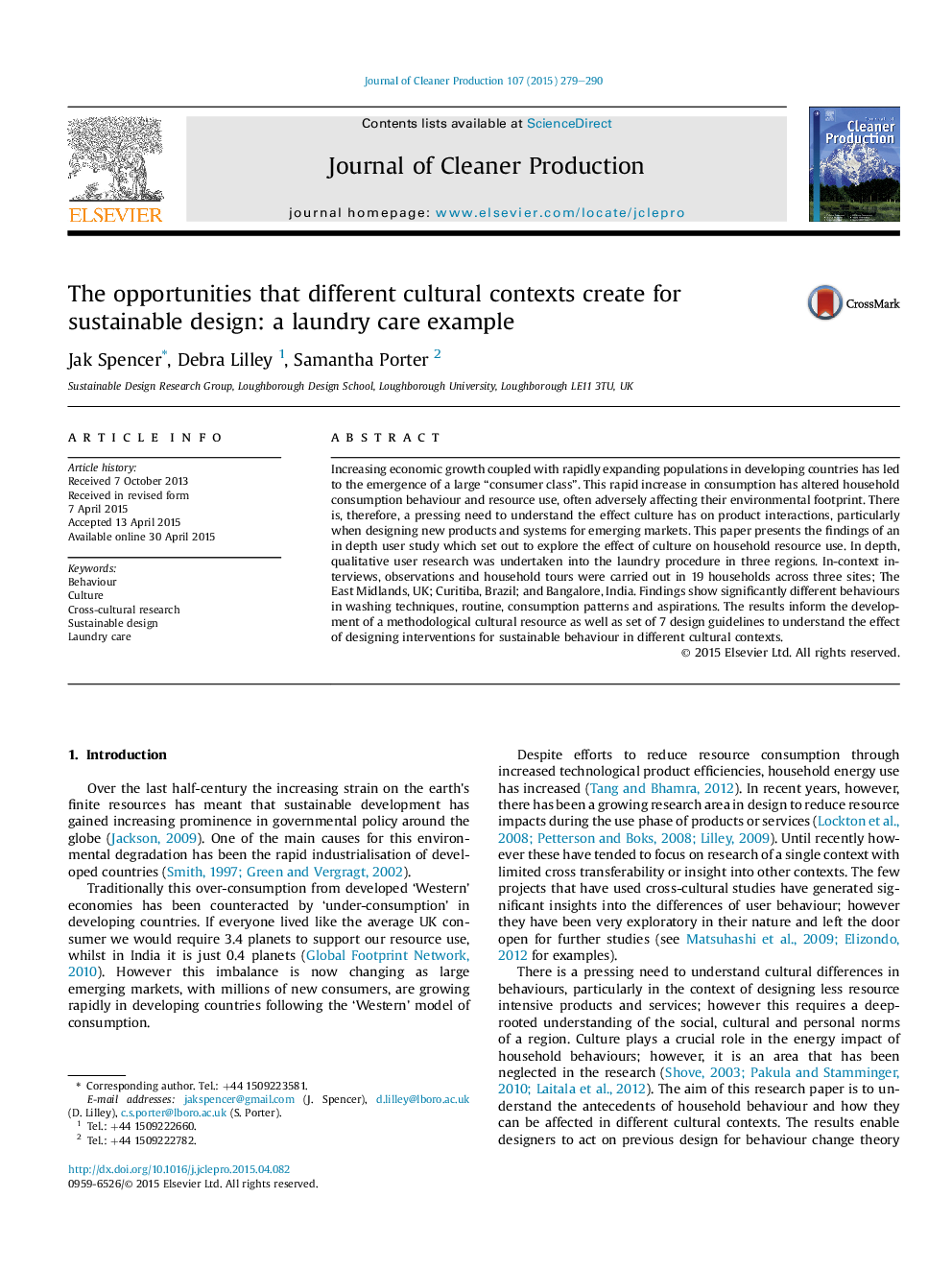| Article ID | Journal | Published Year | Pages | File Type |
|---|---|---|---|---|
| 1744419 | Journal of Cleaner Production | 2015 | 12 Pages |
•User study on household resource consumption in Brazil, India and the UK.•A set of culturally significant and culturally independent factors are proposed.•7 guidelines to design low impact products in new cultural contexts are proposed.•The resources help designers exploring new, unfamiliar markets.
Increasing economic growth coupled with rapidly expanding populations in developing countries has led to the emergence of a large “consumer class”. This rapid increase in consumption has altered household consumption behaviour and resource use, often adversely affecting their environmental footprint. There is, therefore, a pressing need to understand the effect culture has on product interactions, particularly when designing new products and systems for emerging markets. This paper presents the findings of an in depth user study which set out to explore the effect of culture on household resource use. In depth, qualitative user research was undertaken into the laundry procedure in three regions. In-context interviews, observations and household tours were carried out in 19 households across three sites; The East Midlands, UK; Curitiba, Brazil; and Bangalore, India. Findings show significantly different behaviours in washing techniques, routine, consumption patterns and aspirations. The results inform the development of a methodological cultural resource as well as set of 7 design guidelines to understand the effect of designing interventions for sustainable behaviour in different cultural contexts.
